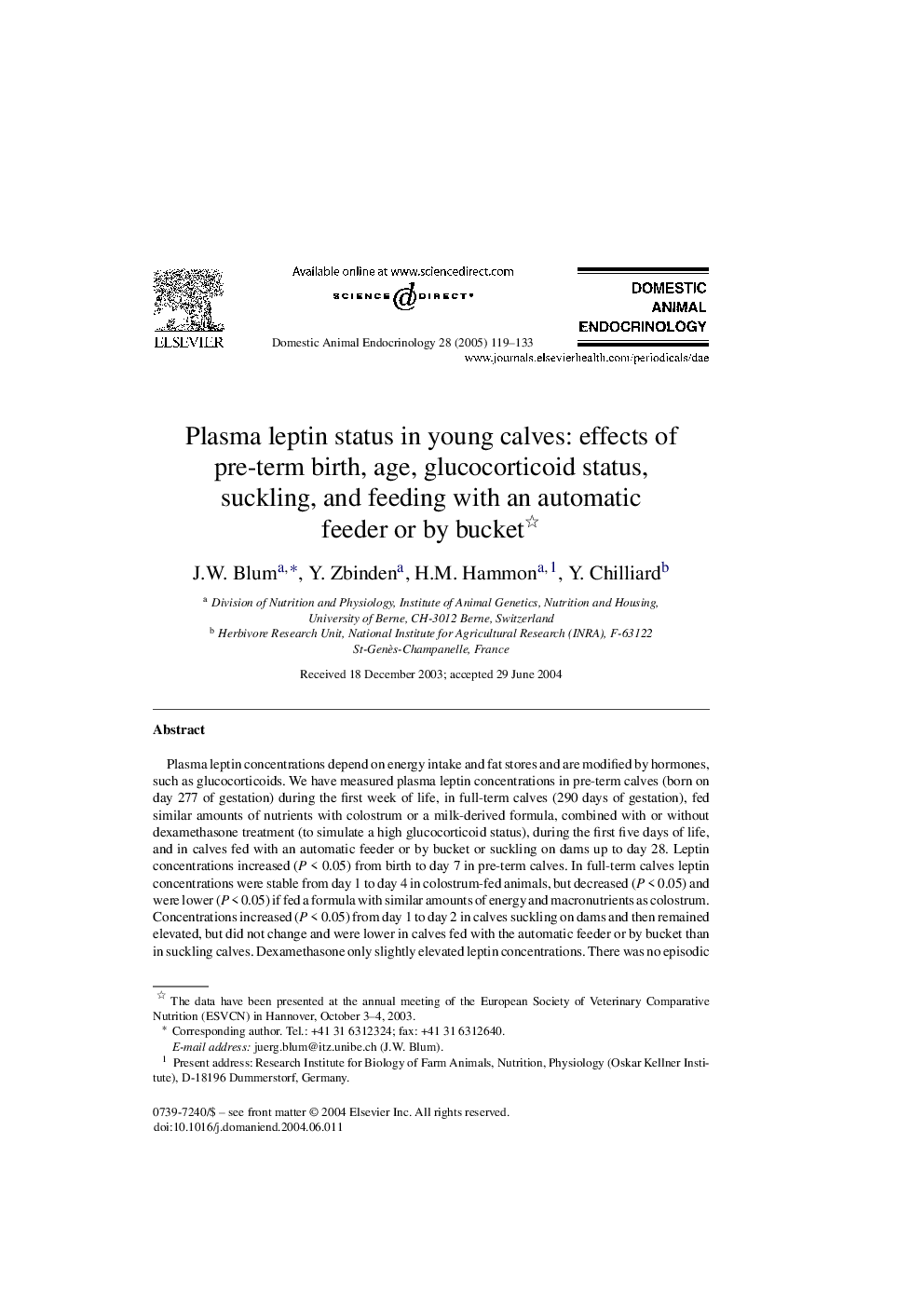| Article ID | Journal | Published Year | Pages | File Type |
|---|---|---|---|---|
| 8967259 | Domestic Animal Endocrinology | 2005 | 15 Pages |
Abstract
Plasma leptin concentrations depend on energy intake and fat stores and are modified by hormones, such as glucocorticoids. We have measured plasma leptin concentrations in pre-term calves (born on day 277 of gestation) during the first week of life, in full-term calves (290 days of gestation), fed similar amounts of nutrients with colostrum or a milk-derived formula, combined with or without dexamethasone treatment (to simulate a high glucocorticoid status), during the first five days of life, and in calves fed with an automatic feeder or by bucket or suckling on dams up to day 28. Leptin concentrations increased (P < 0.05) from birth to day 7 in pre-term calves. In full-term calves leptin concentrations were stable from day 1 to day 4 in colostrum-fed animals, but decreased (P < 0.05) and were lower (P < 0.05) if fed a formula with similar amounts of energy and macronutrients as colostrum. Concentrations increased (P < 0.05) from day 1 to day 2 in calves suckling on dams and then remained elevated, but did not change and were lower in calves fed with the automatic feeder or by bucket than in suckling calves. Dexamethasone only slightly elevated leptin concentrations. There was no episodic secretion pattern, and there were no consistent associations of leptin with various metabolites and hormones. In conclusion, plasma leptin in young calves with respect to effects of nutrition (low energy intake) and hormones (glucocorticoids) and in association with metabolic changes behaved differently from what is known in mature cattle.
Related Topics
Life Sciences
Agricultural and Biological Sciences
Animal Science and Zoology
Authors
J.W. Blum, Y. Zbinden, H.M. Hammon, Y. Chilliard,
